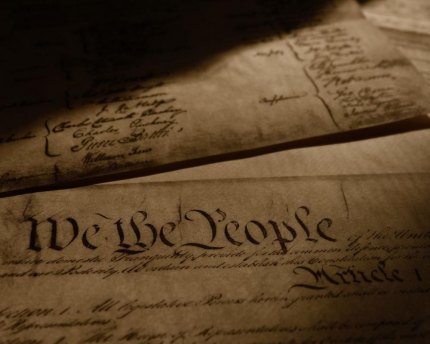What is a constitutional crisis?

As in this headline from the Washington, D.C.-based newspaper, The Hill: “Dems warn of ‘constitutional crisis’ but wary of impeachment.” Or this one from USA Today: “Kamala Harris says there is a 'breakdown of responsibilities' and likely 'constitutional crisis.” Or this one from Slate.com: “Are we in a constitutional crisis?”
So, what is the definition of a constitutional crisis? And what are examples from history? Here is the rundown, along with resources for further study:
First, is there a definition? Various definitions can be found on the web, but it is difficult to find one definition agreed upon by everyone. When U.S. lawmakers speak of a constitutional crisis, they are basically referring to a profound disagreement over the U.S. Constitution. It could be a matter that is not addressed by the Constitution or an issue that is addressed by the Constitution but overstepped or rejected by power players. The National Constitution Center website describes a constitutional crisis as a situation that “tested the foundations of the Constitution and changed it, in some ways.”
How is a constitutional crisis different from a run-of-the-mill political spat? Consider that arguments aren’t such a bad thing in a democracy. A constitutional crisis is not the same as a political crisis.
“The American system of government was based on the idea that the different branches, as well as the states and federal government, would continually balance and check each other,” wrote Sanford Levinson, professor at the University of Texas at Austin Law School, and Jack M. Balkin, Yale Law School professor, in the 2009 article, "Constitutional Crises", published in the University of Pennsylvania Law Review. “This means that they will disagree and oppose each other. If we were to say that every such confrontation was a crisis, we would have to conclude that the American Constitution was designed to place the country in a state of perpetual crisis. To the contrary, our constitutional system was designed to allow for often-heated conflicts, like those about abortion or race relations, and to keep them within the boundaries of ordinary politics.”
Today, we all know that if the president dies, the vice president becomes president. But in 1841, “the Constitution wasn’t clear on what happened next, just specifying that Vice President John Tyler assumed the duties of the president,” recounted the National Constitution Center. “But was Tyler the president or the acting president?”
Tyler stood his ground, according to The Complete Book of Presidents, by William A. DeGregorio and Sandra Lee Stuart, (Barricade Books; 2013). Rejecting the notion that he was an "acting" president, Tyler regarded himself as president, "his powers undiminished by the manner of his accession," the authors wrote. "To emphasize the point, he returned unopened all mail addressed to him as 'acting president.' Tyler's view ultimately prevailed as the precedent that has many times since elevated the vice president to the full status of president."
The matter was finally settled with the 25th Amendment in 1967.
Are we in a constitutional crisis now? It depends on how events unfold. U.S. Rep. Richard Neal, D-Mass., chairman of the House Ways and Means Committee, on Friday subpoenaed President Donald Trump's tax returns. So far, the Trump administration has refused to turn the tax returns over. Stay tuned. We may be headed that way.
To know more:
- Bloomberg.com: Congress Has the Upper Hand on Trump’s Tax Returns by Cass R. Sunstein, May 8, 2019.
- Cornell Law School, Legal Information Center: 25th Amendment.
- National Constitution Center: Five Constitutional Crises that actually existed, by NCC staff, June 13, 2012.
- Slate.com: Are we in a constitutional crisis? By Dahlia Lithwick, May 9, 2019.
- The Complete Book of Presidents, by William A. DeGregorio and Sandra Lee Stuart, (Barricade Books; 2013).
- University of Pennsylvania Law Review: Constitutional Crises by Sanford Levinson and Jack M. Balkin, February 2009.
- U.S. House of Representatives, Ways and Means Committee: Neal Issues Subpoenas to Treasury Secretary and IRS Commissioner, May 10, 2019.
Related:
Trump, Brexit and the rise of polarization
If you would like to comment, like us on Facebook and tell us what you think.

